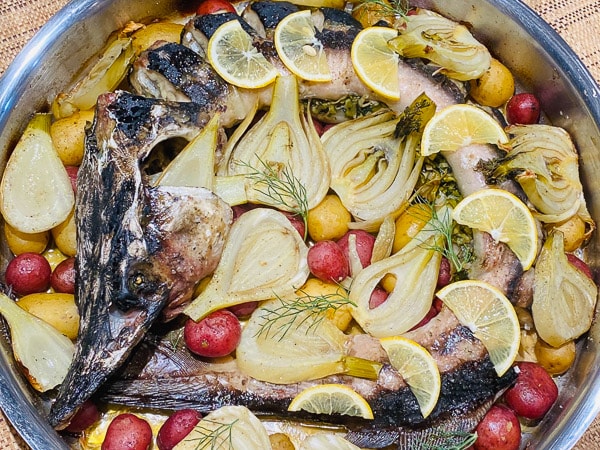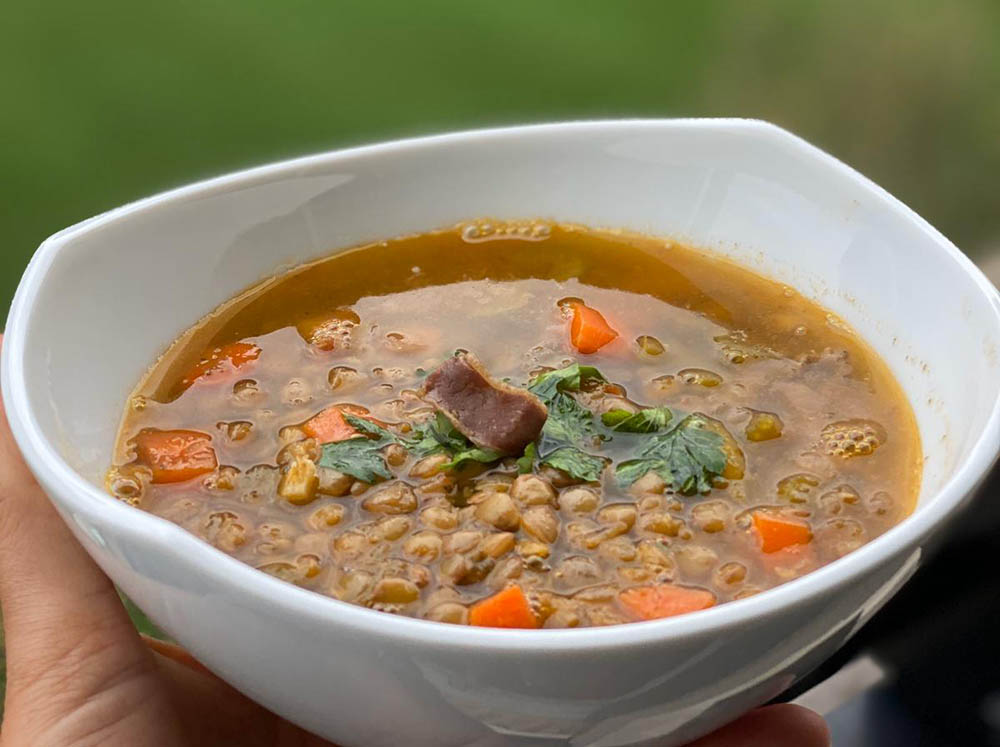The health benefits of incorporating more seafood into your diet
Seafood has long been recognized as a healthy and nutritious food. It is a rich source of protein, vitamins, and minerals, and it contains essential omega-3 fatty acids that are beneficial for heart health and brain function. In this blog, we will explore the many health benefits of incorporating more seafood into your diet.
Heart Health
Eating seafood has been linked to a reduced risk of heart disease. The omega-3 fatty acids found in seafood help lower triglycerides, reduce inflammation, and improve the function of blood vessels. Studies have also shown that regular consumption of seafood can help to lower blood pressure and reduce the risk of heart attack and stroke.
Brain Function
The omega-3 fatty acids found in seafood are also essential for brain function. They help to promote the growth and development of brain cells, improve memory and concentration, and reduce the risk of cognitive decline and dementia. Studies have also shown that omega-3 fatty acids can help to improve mood and reduce symptoms of depression and anxiety.
Bone Health
Seafood is a rich source of calcium and vitamin D, which are essential for strong bones. Calcium is necessary for bone growth and maintenance, while vitamin D helps the body to absorb calcium. Eating seafood on a regular basis can help to prevent osteoporosis and other bone diseases.
Weight Management
Seafood is a low-calorie, high-protein food that can help to promote weight loss and weight management. Protein is an essential nutrient that helps to build and repair muscle tissue, and it also helps to keep you feeling full and satisfied for longer periods of time. Eating seafood can help to reduce cravings and prevent overeating, which can lead to weight gain.
Eye Health
Seafood is a rich source of vitamin A and omega-3 fatty acids, which are essential for eye health. Vitamin A helps to maintain healthy vision, while omega-3 fatty acids help to prevent age-related macular degeneration and other eye diseases.
Pregnancy and Infant Development
Eating seafood during pregnancy can have numerous benefits for both the mother and the developing fetus. The omega-3 fatty acids found in seafood are essential for fetal brain and eye development, and they may also help to reduce the risk of premature birth and low birth weight. Pregnant women are advised to choose low-mercury fish, such as salmon, shrimp, and canned light tuna.
Incorporating More Seafood Into Your Diet
Now that we've explored the many health benefits of seafood, you may be wondering how to incorporate more of it into your diet. Here are some tips:
- Choose a variety of seafood. Try different types of fish, shellfish, and other seafood to get a range of nutrients and flavors.
- Aim for 2-3 servings of seafood per week. The American Heart Association recommends eating at least two servings of fish per week, with each serving being 3.5 ounces of cooked fish.
- Look for sustainable seafood. Choose seafood that is sustainably sourced and harvested to support healthy oceans and ecosystems.
- Try new recipes. Experiment with different cooking methods and flavors to find seafood dishes that you enjoy.
Here are three delicious seafood recipes to try:
Grilled Shrimp Skewers
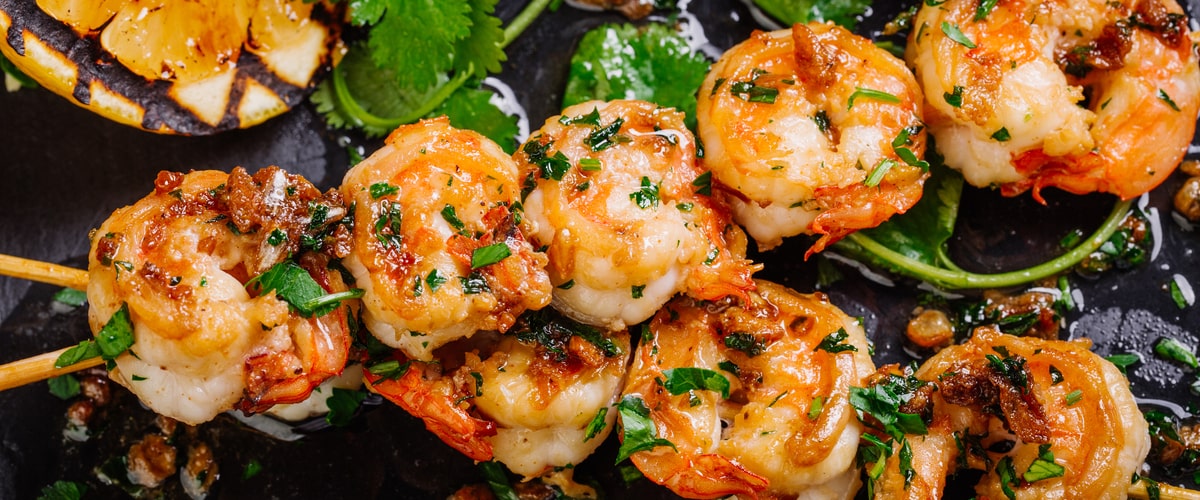
Ingredients:
- 1 pound of large shrimp, peeled and deveined
- 2 tablespoons of olive oil
- 2 cloves of garlic, minced
- 1 tablespoon of smoked paprika
- 1 tablespoon of chopped fresh parsley
- Salt and pepper to taste
Instructions:
- In a bowl, whisk together the olive oil, minced garlic, smoked paprika, parsley, salt, and pepper.
- Add the peeled and deveined shrimp to the bowl and toss to coat evenly.
- Thread the shrimp onto skewers and heat the grill to medium-high heat.
- Grill the shrimp skewers for 2-3 minutes on each side until they are pink and slightly charred.
- Serve immediately.
Pan-Seared Scallops with Lemon Butter Sauce
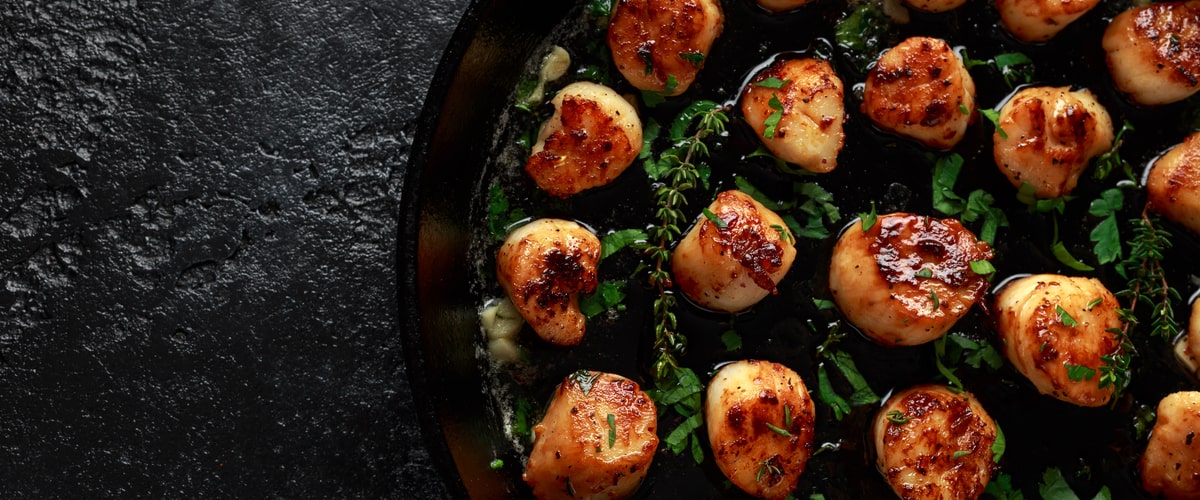
Ingredients:
- 1 pound of sea scallops, rinsed and patted dry
- Salt and pepper to taste
- 2 tablespoons of butter
- 1 clove of garlic, minced
- Juice of half a lemon
- 2 tablespoons of chopped fresh parsley
Instructions:
- Season the sea scallops with salt and pepper on both sides.
- Heat a large skillet over medium-high heat and add the butter.
- Once the butter has melted, add the minced garlic and cook for 30 seconds until fragrant.
- Add the sea scallops to the skillet and cook for 2-3 minutes on each side until they are golden brown and cooked through.
- Remove the sea scallops from the skillet and set aside.
- In the same skillet, add the lemon juice and chopped parsley and stir to combine.
- Drizzle the lemon butter sauce over the sea scallops and serve immediately.
Grilled Salmon with Avocado Salsa
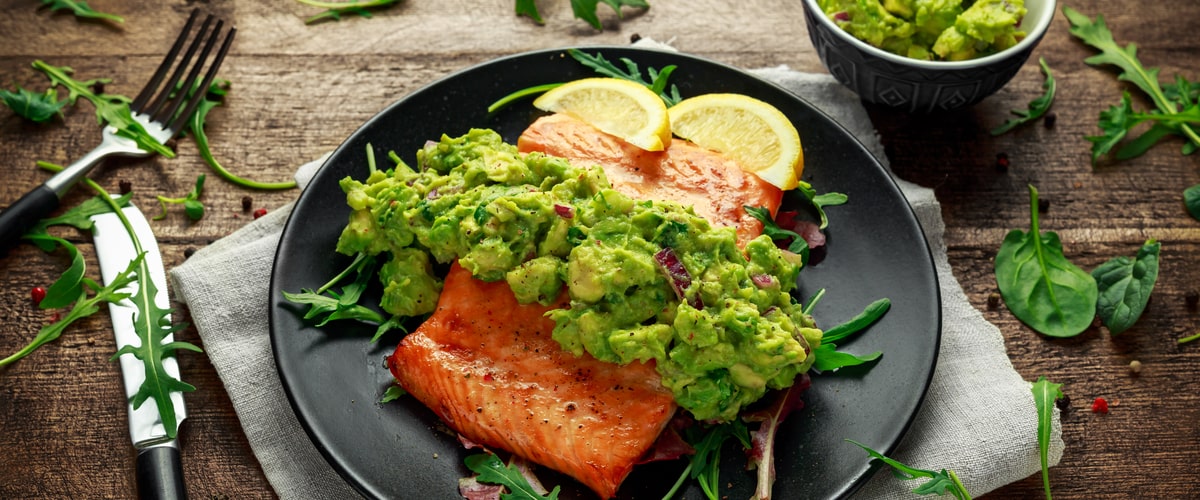
Ingredients:
- 4 salmon fillets
- Salt and pepper to taste
- 2 tablespoons of olive oil
- 2 avocados, diced
- 1 small red onion, diced
- Juice of one lime
- 1 tablespoon of chopped fresh cilantro
Instructions:
- Preheat the grill to medium-high heat.
- Season the salmon fillets with salt and pepper on both sides and drizzle with olive oil.
- Grill the salmon fillets for 4-5 minutes on each side until they are cooked through.
- In a bowl, combine the diced avocados, diced red onion, lime juice, chopped cilantro, and salt and pepper to taste.
- Serve the grilled salmon with the avocado salsa on top.
In conclusion, incorporating more seafood into your diet can provide numerous health benefits, including improved brain function, reduced inflammation, and a lower risk of heart disease. With a wide variety of seafood options available, there is something to suit everyone's taste preferences. Try incorporating some of these delicious seafood recipes into your weekly meal rotation to reap the benefits and enjoy a flavorful and nutritious diet.




